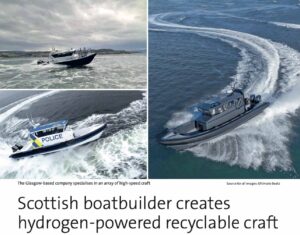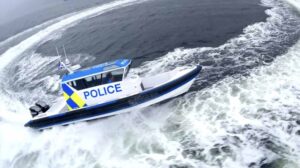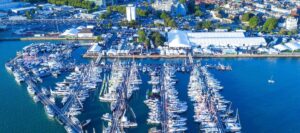Jeroen Wats is spearheading a transformative shift in boatbuilding with his innovative Danu composite material, heralding a new era of sustainability and environmental consciousness in the marine industry. This revolutionary material, which is 100-percent recyclable, has the potential to reshape the way boats are constructed and disposed of, addressing the longstanding issue of fiberglass waste accumulation.
Traditional fiberglass reinforced plastic (GRP) has been the cornerstone of boatbuilding for decades, prized for its durability, strength, and versatility. However, its non-biodegradable nature poses significant challenges in terms of disposal, leading to millions of kilograms of GRP ending up in landfills each year. Recognizing this ecological dilemma, Wats embarked on a mission to develop an alternative material that not only retains the desirable properties of GRP but also offers a sustainable end-of-life solution.
The result of years of research and development is the Danu composite, aptly named after the Celtic earth-mother goddess, symbolizing its environmentally friendly attributes. This composite material boasts remarkable strength, affordability, and crucially, full recyclability. Unlike traditional GRP, Danu can be broken down and recycled repeatedly without compromising its mechanical properties, offering a truly circular solution to boat construction.
Wats’ journey towards Danu began with a profound realization of the inherent conflict between his passion for boatbuilding and his environmental values. Determined to bridge this gap, he founded ExoTechnologies and poured millions of pounds into developing Danu, setting forth stringent criteria of sustainability, strength, affordability, and circularity. After rigorous testing and refinement, Danu emerged as a game-changing material, capable of transforming the boatbuilding landscape.
The adoption of Danu holds immense promise for the marine industry, paving the way for more eco-conscious practices and reducing its environmental footprint. With its versatility and resilience, Danu is poised to find applications beyond boatbuilding, spanning industries such as wind energy, food storage, and sports equipment manufacturing.
As Wats continues to advocate for the widespread adoption of Danu, engaging with boatbuilders and industry stakeholders, the future looks promising for sustainable boatbuilding practices. With Danu leading the charge, the marine industry stands on the brink of a paradigm shift towards a greener, more sustainable future, where boats are not just vessels of recreation but symbols of environmental stewardship.






